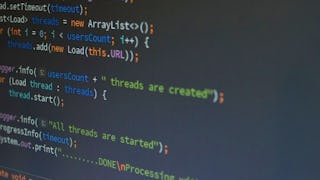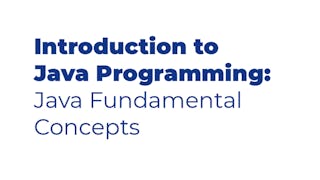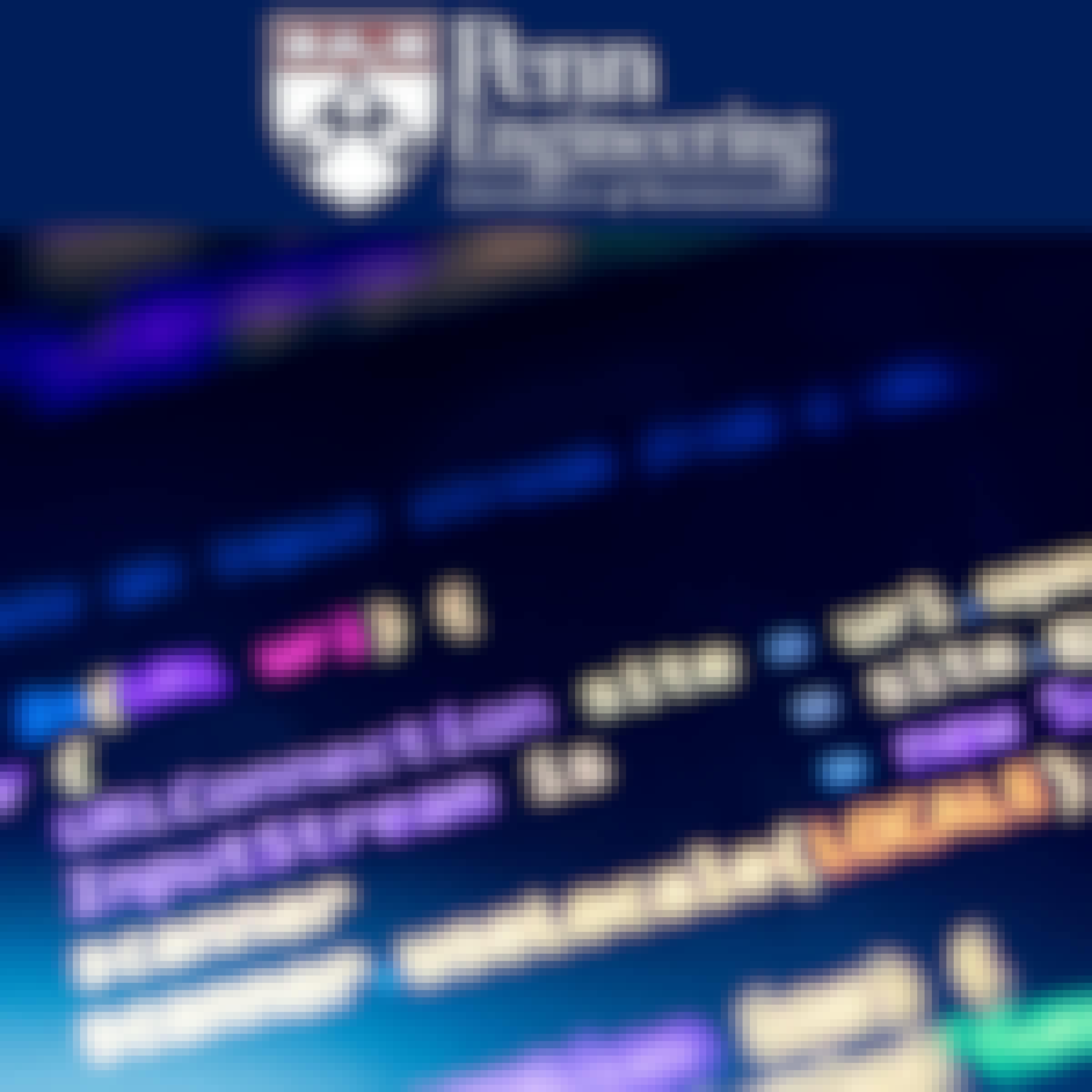Filter by
SubjectRequired
LanguageRequired
The language used throughout the course, in both instruction and assessments.
Learning ProductRequired
LevelRequired
DurationRequired
SkillsRequired
SubtitlesRequired
EducatorRequired
Explore the Java GUI Course Catalog
 Status: NewStatus: Free Trial
Status: NewStatus: Free TrialSkills you'll gain: Spring Framework, Prompt Engineering, HTML and CSS, Cloud-Native Computing, Software Development Life Cycle, Software Architecture, Hibernate (Java), Database Design, Docker (Software), Containerization, Git (Version Control System), GitHub, Software Design, Microservices, Object Oriented Programming (OOP), Large Language Modeling, Spring Boot, Object-Relational Mapping, Java Programming, Interviewing Skills
 Status: Free Trial
Status: Free TrialMultiple educators
Skills you'll gain: Unit Testing, Data Structures, Event-Driven Programming, Interactive Data Visualization, Java, Object Oriented Programming (OOP), Development Testing, User Interface (UI), Debugging, Java Programming, Software Testing, Computer Programming, Software Engineering, Algorithms, Performance Tuning, Encryption, Programming Principles, Data Analysis, Statistical Analysis, Software Design

Coursera Project Network
Skills you'll gain: Java, Integrated Development Environments, Mobile Development, Computer Programming, Programming Principles, Object Oriented Programming (OOP), Debugging
 Status: Free Trial
Status: Free TrialUniversity of California San Diego
Skills you'll gain: Unit Testing, Growth Mindedness, Data Structures, Graph Theory, Event-Driven Programming, Interactive Data Visualization, Java, Network Analysis, Object Oriented Programming (OOP), Technical Communication, Development Testing, User Interface (UI), Java Programming, Software Testing, Computer Programming, Adaptability, Object Oriented Design, Performance Tuning, Algorithms, Software Design
 Status: Free Trial
Status: Free TrialLearnQuest
Skills you'll gain: Java Programming, Spring Framework, Java, Eclipse (Software), Object Oriented Programming (OOP), Object Oriented Design, Integrated Development Environments, Development Environment, Java Platform Enterprise Edition (J2EE), Software Design, Software Installation, Computer Programming, Programming Principles, Program Development, Virtual Machines, Debugging, Package and Software Management, Data Structures, File Management
 Status: Free Trial
Status: Free TrialDuke University
Skills you'll gain: Object Oriented Programming (OOP), Java, Hypertext Markup Language (HTML), Software Design, Software Design Patterns, Data Structures, HTML and CSS, Debugging, Software Engineering, Cascading Style Sheets (CSS), Web Development, Computer Programming, Programming Principles, Javascript, Encryption, Algorithms, AI Personalization, Web Design, Data Processing, Statistical Analysis
 Status: Free Trial
Status: Free TrialLearnKartS
Skills you'll gain: JUnit, Java, Java Programming, Software Design Patterns, Unit Testing, Object Oriented Programming (OOP), Software Architecture, Debugging, Java Platform Enterprise Edition (J2EE), Software Development, Secure Coding, Maintainability, Software Design, Software Testing, Computer Programming, Test Case, Program Development, Authentications, Application Security, Mathematical Software
 Status: Free Trial
Status: Free TrialUniversity of Pennsylvania
Skills you'll gain: Object Oriented Design, Java, Object Oriented Programming (OOP), Unit Testing, Data Structures, Software Testing, Program Development, Programming Principles, Test Driven Development (TDD), Computer Programming

Peking University
Skills you'll gain: Java Programming, Java, Object Oriented Programming (OOP), Programming Principles, Computer Programming, Object Oriented Design, Program Development, C and C++, UI Components, JUnit, Application Programming Interface (API), Debugging, Application Development, Event-Driven Programming, Data Structures, File Management
 Status: New
Status: NewBoard Infinity
Skills you'll gain: Object Oriented Programming (OOP), Eclipse (Software), Java Programming, Development Environment, Programming Principles, Computer Programming, Unit Testing, Debugging, Virtual Machines
 Status: Free Trial
Status: Free TrialLearnQuest
Skills you'll gain: Eclipse (Software), Java, Java Programming, Integrated Development Environments, Development Environment, Software Installation, Computer Programming, Programming Principles, Program Development, Object Oriented Programming (OOP)
 Status: Free Trial
Status: Free TrialSkills you'll gain: Istio, HTML and CSS, Node.JS, Software Development Life Cycle, Software Architecture, Server Side, MongoDB, Application Deployment, CI/CD, Cloud-Native Computing, React Redux, NoSQL, Kubernetes, Restful API, OpenShift, Git (Version Control System), Cloud Applications, Containerization, Ajax, Interviewing Skills
Java Gui learners also search
In summary, here are 10 of our most popular java gui courses
- IBM Java Developer: IBM
- Object Oriented Programming in Java: Duke University
- Introduction to Java Programming: Java Fundamental Concepts: Coursera Project Network
- Object Oriented Java Programming: Data Structures and Beyond: University of California San Diego
- Core Java: LearnQuest
- Java Programming and Software Engineering Fundamentals: Duke University
- Core Java for Complete Beginners: LearnKartS
- Introduction to Java and Object-Oriented Programming: University of Pennsylvania
- Java程序设计: Peking University
- Introduction to JUnit: Board Infinity










